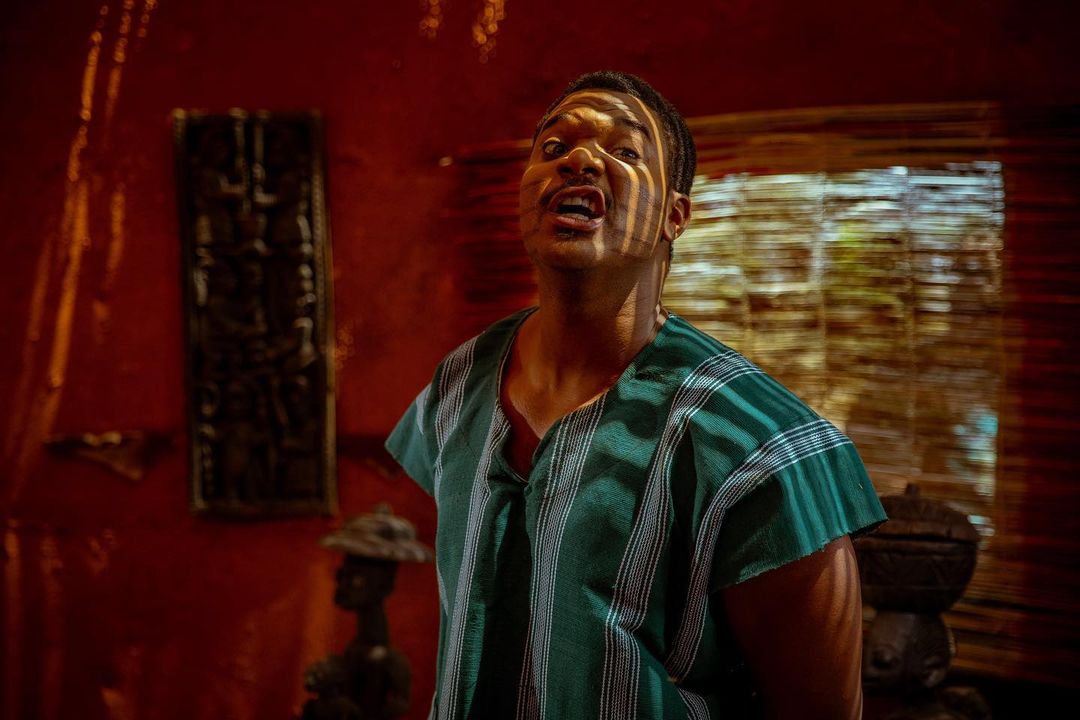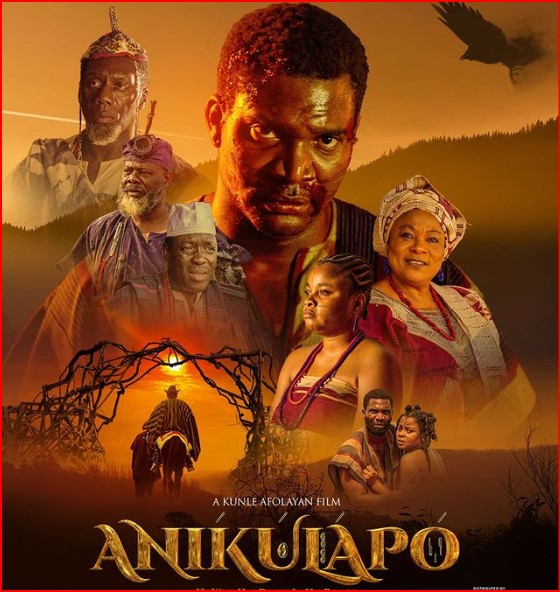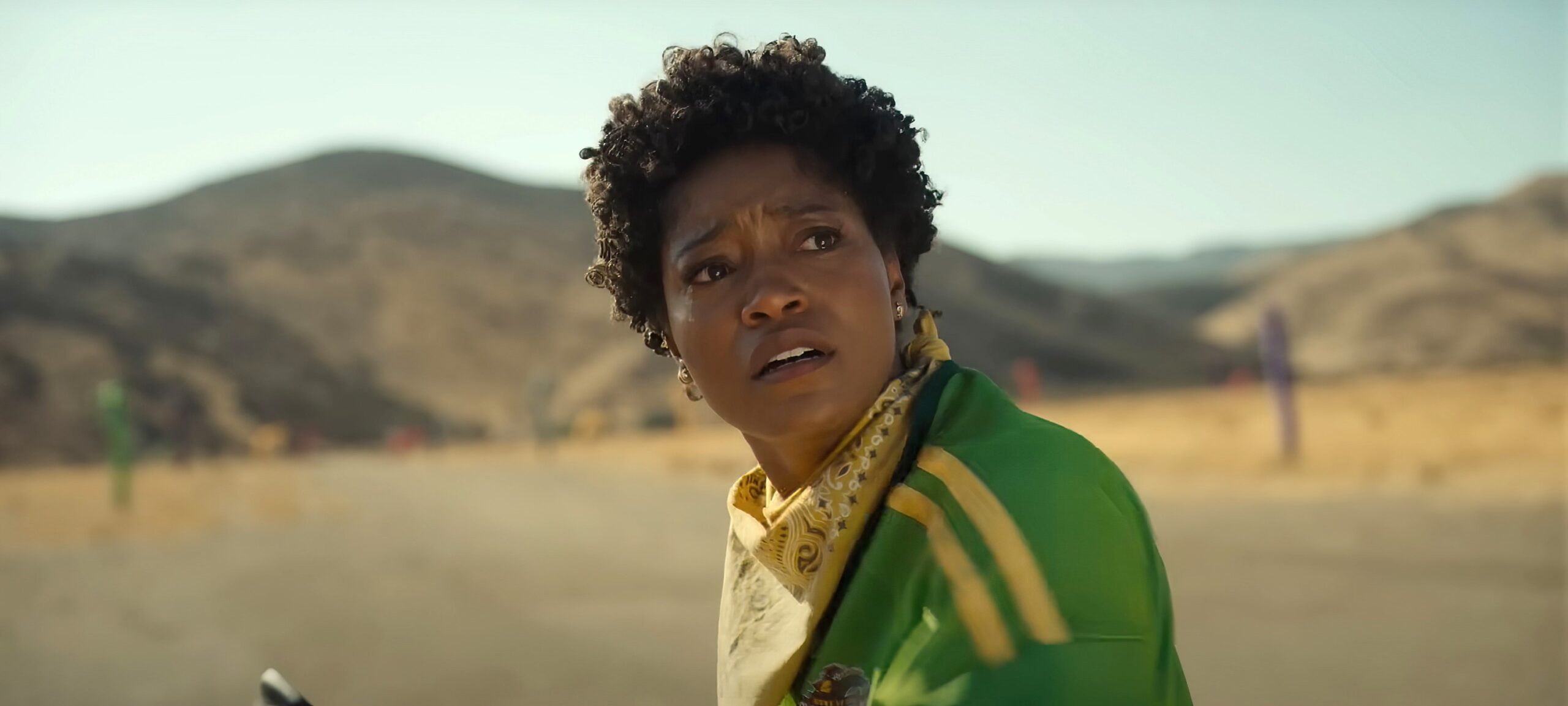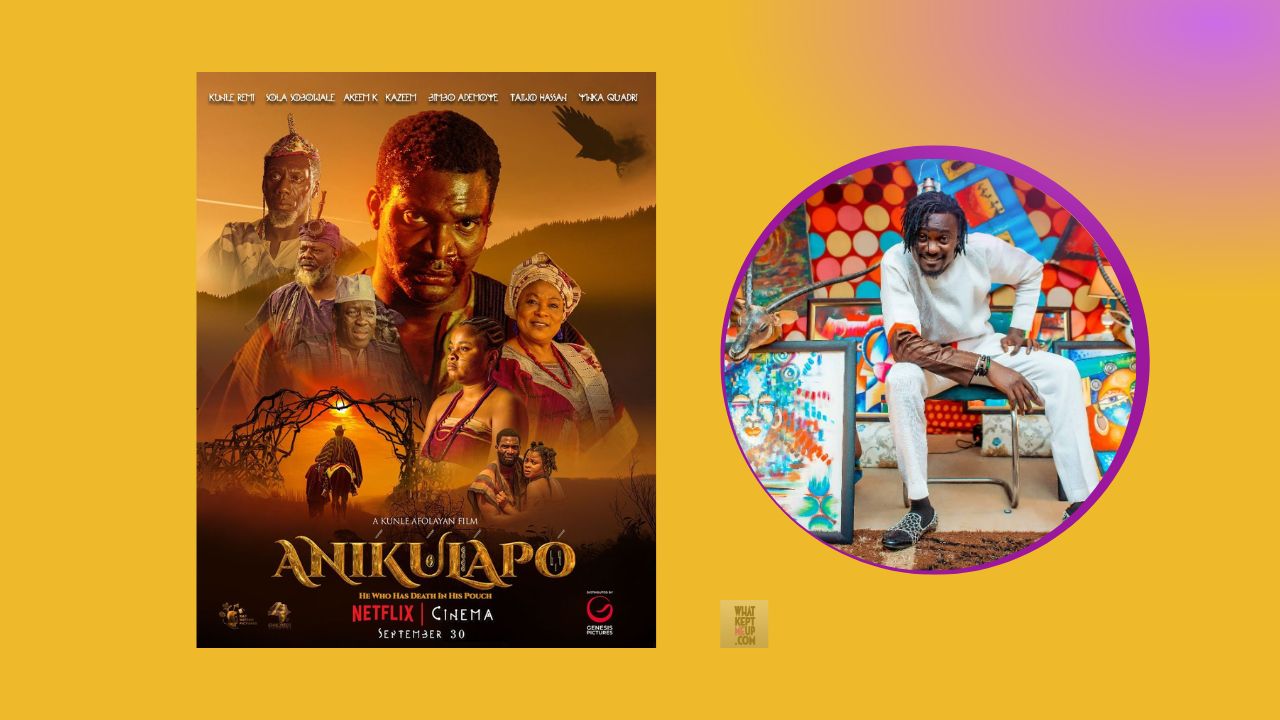-Spoiler Alert-
2022 seems to be a coming-of-age year for traditional epic films in Nollywood, with audiences being treated to culturally rich films. Earlier this year, King of Thieves stole hearts in the cinemas, now Kunle Afolayan excites us with Anikulapo while Biyi Bandele’s Elesin Oba waits in the wings. Anikulapo is a Yoruba traditional epic set when the Ọ̀yọ́ empire reign dominated Yoruba land. With this latest Netflix entry, Kunle Afolayan transports us back in time with a story inspired by the Ifá mythology, a true and proper display of culture.
‘ ‘Anikulapo’: In Defence of Saro
‘Anikulapo’: In Defence of Saro

Saro (Kunle Remi), a traveller from Gbongan arrives in Ọ̀yọ́ Ilé looking to establish himself as a cloth weaver. He is a dashing young man and he immediately catches the eye of a rich businesswoman, Awarun (Sola Sobowale). In return for sexual favours, she helps him get on his feet. Saro is handsome and an eligible bachelor and he soon begins to catch the eyes of other women, maids and maidens. He eventually catches the eye of Princess Omowumi (Eyiyemi Afolayan) and the Aláàfin’s youngest and favourite wife, Arolake (Bimbo Ademoye). Saro and Arolake start an affair and plan to elope to live in love together, but they are outed by the heartbroken princess when she discovers their secret.
Saro is violently mobbed and left to die in the forest where he is resurrected by a mystic Akala bird who gives him another chance at life depending on the reason for his death. The Akala bird does not find him worthy of another chance but before it is able to banish him back to the afterlife, Arolake, who has been watching, chases the bird away and retrieves the ado (gourd) it used to bring Saro back to life. When they get to the town of Ojúmọ́, Arolake sees a boy’s death as their chance of a new and better life, she gives Saro the magical gourd to use to resurrect the boy. News of Saro’s act spread and he is given a new name- Anikulapo, the master of death. Anikulapo’s fame spreads far and wide and he becomes rich and powerful but his hubris and irresponsibility prove to be his downfall.
Like in all Kunle Afolayan films, the vast amount of effort put into research and other elements of filmmaking is evident throughout despite a few lapses in execution. The attention paid to detail is impressive, the setting, language, and cultural practices. Anikulapo’s plot is driven by an interesting story but one finds it difficult to hold on to a particular detail as the main conflict of the plot for the most part of the film. In the first hour of the film, we are teased with several minor conflicts which while interesting do not build up to the main conflict.
Furthermore, unnecessary scenes with unimportant details that can even count as mistelling of history needlessly extend the runtime. There’s a new trend of retelling African stories with narratives that absolves them of responsibility for ugly practices done in the past. In some scenes, it is made to look like the Ọ̀yọ́ empire vehemently opposed slave trade. This is ridiculous considering the fact that the Ọ̀yọ́ empire was known as one of the biggest facilitators of slave trade and even practiced it before the white men made it more profitable, but then this is supposedly fiction. We digress.
 Ranking Kunle Afolayan’s Debutants, From ‘October 1’ to ‘Swallow’
Ranking Kunle Afolayan’s Debutants, From ‘October 1’ to ‘Swallow’
 Everything We Know About ‘Breath of Life’, Prime Video’s First Commissioned Nigerian Film
Everything We Know About ‘Breath of Life’, Prime Video’s First Commissioned Nigerian Film
Anikulapo’s story is captivating and beautifully told, the use of Ìjìnlè Yoruba for the dialogue makes it even more interesting but one can’t get over how slowly the dialogue is delivered, could this be because of difficulties with the diction or is this how Yoruba people spoke in the past? While Anikulapo presents a rich display of culture, the depiction of the pottery factory and the use of an Asohun Oba (King’s mouthpiece) being highlights, some details could have been better executed.
Anikulapo is filled with a star cast of top Yoruba actors, seasoned veterans that give efficient performances in their roles, especially Sola Sobowale (King of Boys: The Return of the King) who excels in a different role than we usually see her in. Kunle Remi (A Naija Christmas) gives a good performance but he struggles in some scenes and sometimes with the ìjìnlè Yoruba used for the dialogue. This also seems to be a problem for debutant Eyiyemi Afolayan who plays Princess Omowumi as the lines do not roll off her tongue as it should and this affects her performance. Bimbo Ademoye (Breaded Life) continues her run of impressive performances as she embodies her role perfectly.
The experience of Anikulapo is elevated by the good execution of the technical aspects. The sound design and music help to set the mood and tone of the film with scores that help to reinforce context and are sweet to the ear, while the cinematography ticks all the boxes, aiding the storytelling with great shots. The make-up team also does a good job although some of the tribal marks could have looked better.
In filmmaking, every detail of a film should have a reason for being there and one wonders what the point of the nudity is since it has no bearing on the plot of the film, it is completely unnecessary considering that it is a traditional film and the way sexual relations were regarded in that period. Nevertheless, Anikulapo is another evidence of improvements in Nollywood and a coming of age for traditional films.
Rating: 6.1/10
Share your thoughts in the comments section or on our social media accounts.
Sign Up: Keep track of upcoming films and TV shows on your Google calendar.
Side Musings
- Ọkùnrin, ọkùnrin
- Obìnrin, obìnrin
- Woman King could take notes, imagine if this was done in English
- Boobs vs ass, the battle rages on
- Everybody once practised slavery, enough with the victim mentality
- Great casting
- As have been pointed out by many people, Ọba Adeolu (Hakeem Kazeem) being around a corpse is one of the most forbidden things for a king to do in Yoruba culture, most especially in the presence of a stranger like Saro. With the wealth of cultural knowledge and experience on set, this is too much of an oversight.
- Old Ọ̀yọ́ looks beautiful, time machine? 🤔
- The Akala bird is a vulture. That looks more like a stork or pelican.
Anikulapo is streaming on Netflix.






I like the way you write, you couldn’t have put it any better. Well done
I’ll be looking forward to more of your works
Thank you very much